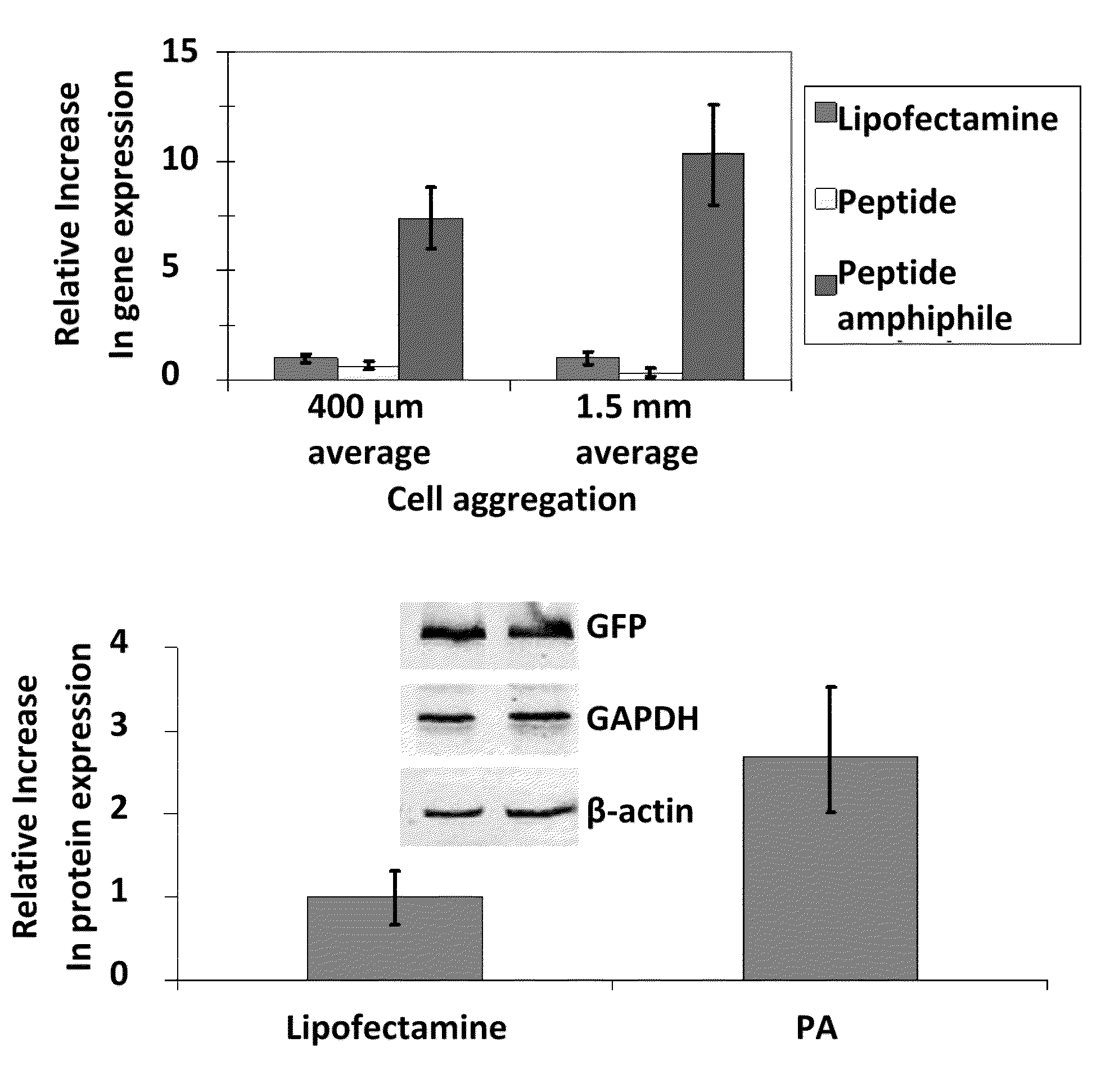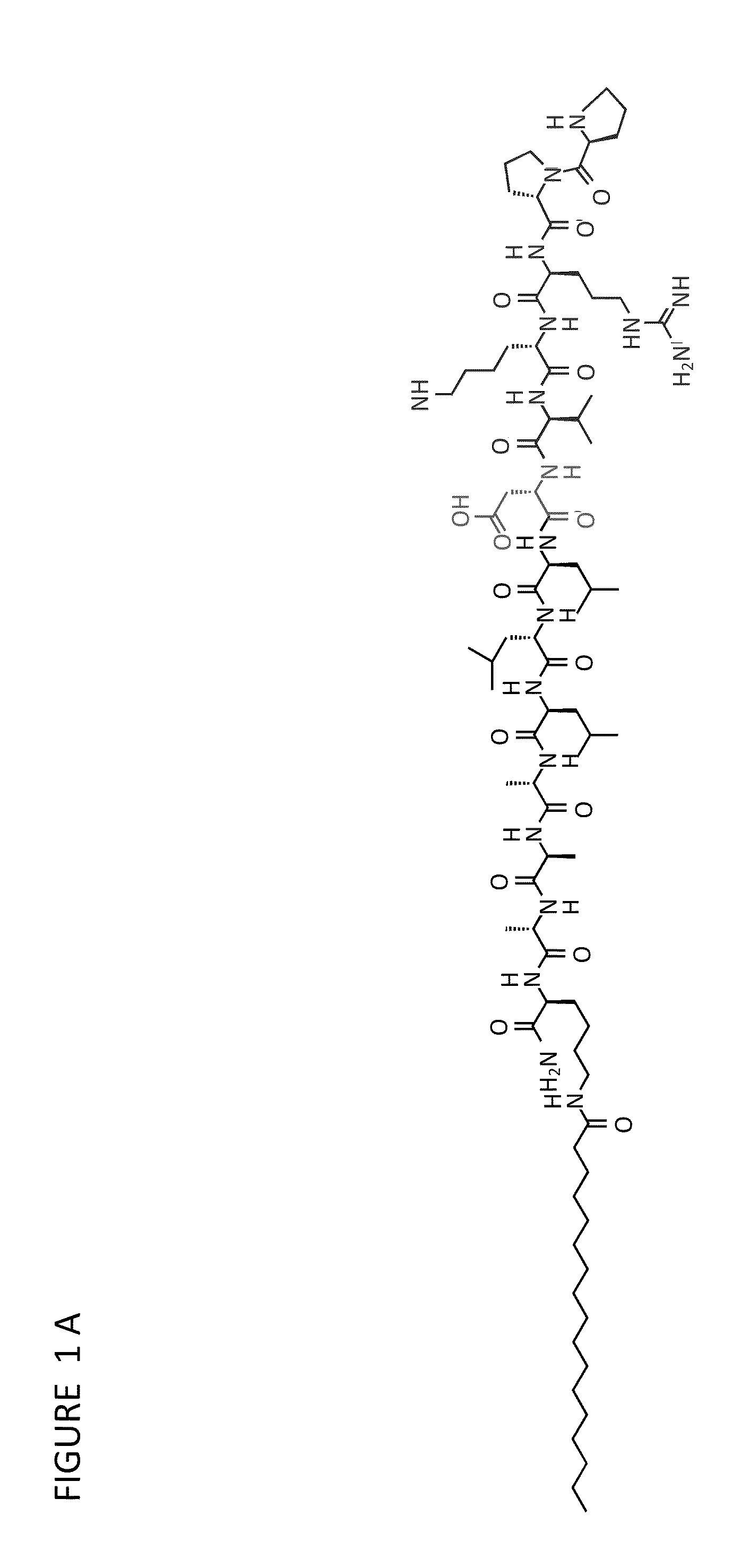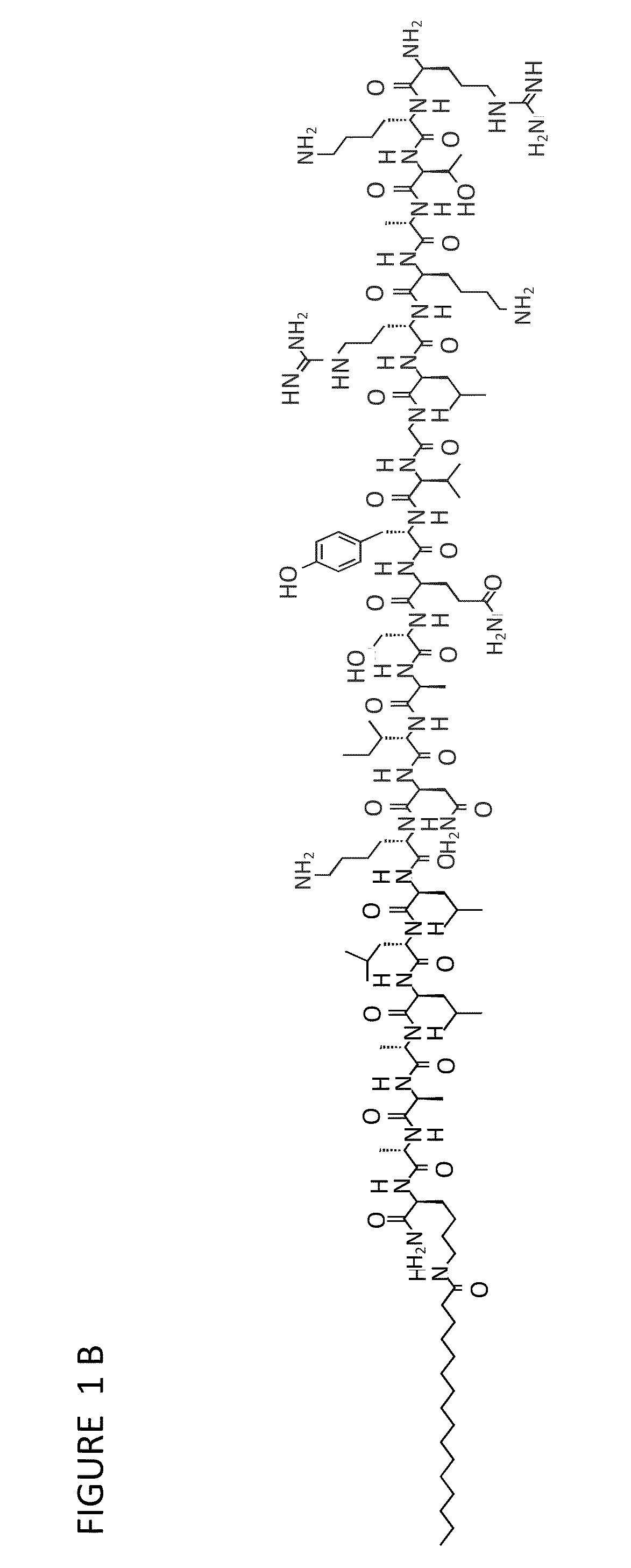Self assembling peptide systems and methods
- Summary
- Abstract
- Description
- Claims
- Application Information
AI Technical Summary
Benefits of technology
Problems solved by technology
Method used
Image
Examples
example 1
Preparation and Testing of Self-Assembling Peptide Amphiphiles
[0073]Physical and chemical characterization. In experiments conducted during development of embodiments of the present invention, after HPLC purification, peptide amphiphiles (PA) were >95% pure by amide content. High resolution mass spectrometry confirmed identity. Gelation was observed both at 0.75 wt % at high pH for all PA systems and at 3.5 wt % with the addition of plasmid for the DNA-binding system. Circular dichroism and FT-IR both showed an α-helical signature for the DNA-binding system while the histidine hexamer showed a β-sheet signature. Physical morphology of the peptide amphiphile systems were characterized by transmission electron microscopy. In experiments conducted during development of embodiments of the present invention, it was found that the PA nanofibers changed morphology dramatically upon addition of plasmid. The DNA-binding PA alone was shorter, highly matted fibers whereas with DNA, the DNA-bin...
PUM
| Property | Measurement | Unit |
|---|---|---|
| Amphiphilic | aaaaa | aaaaa |
| Composition | aaaaa | aaaaa |
| Cell angle | aaaaa | aaaaa |
Abstract
Description
Claims
Application Information
 Login to View More
Login to View More - R&D
- Intellectual Property
- Life Sciences
- Materials
- Tech Scout
- Unparalleled Data Quality
- Higher Quality Content
- 60% Fewer Hallucinations
Browse by: Latest US Patents, China's latest patents, Technical Efficacy Thesaurus, Application Domain, Technology Topic, Popular Technical Reports.
© 2025 PatSnap. All rights reserved.Legal|Privacy policy|Modern Slavery Act Transparency Statement|Sitemap|About US| Contact US: help@patsnap.com



